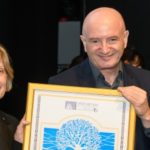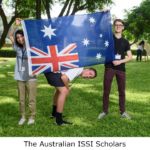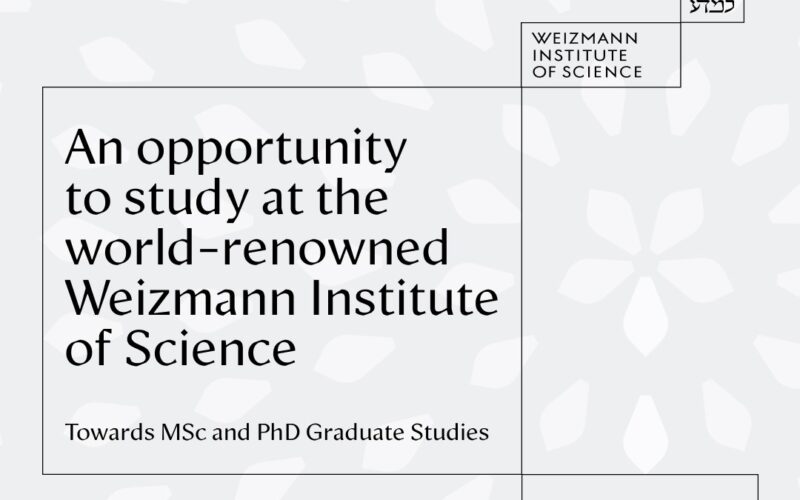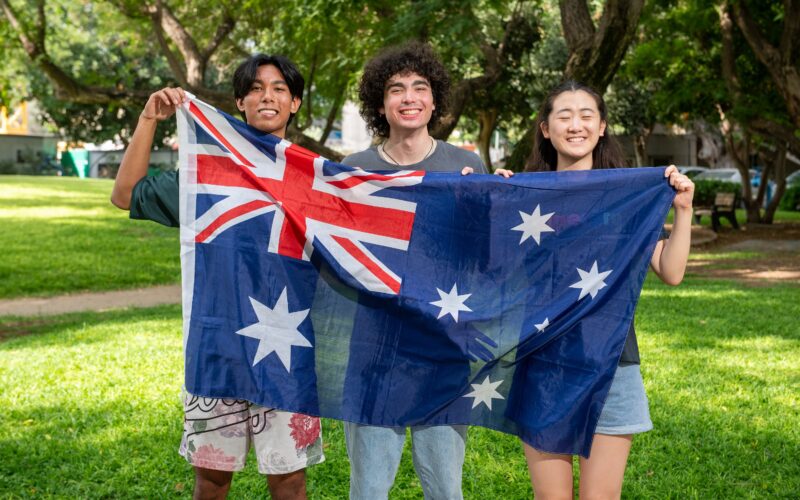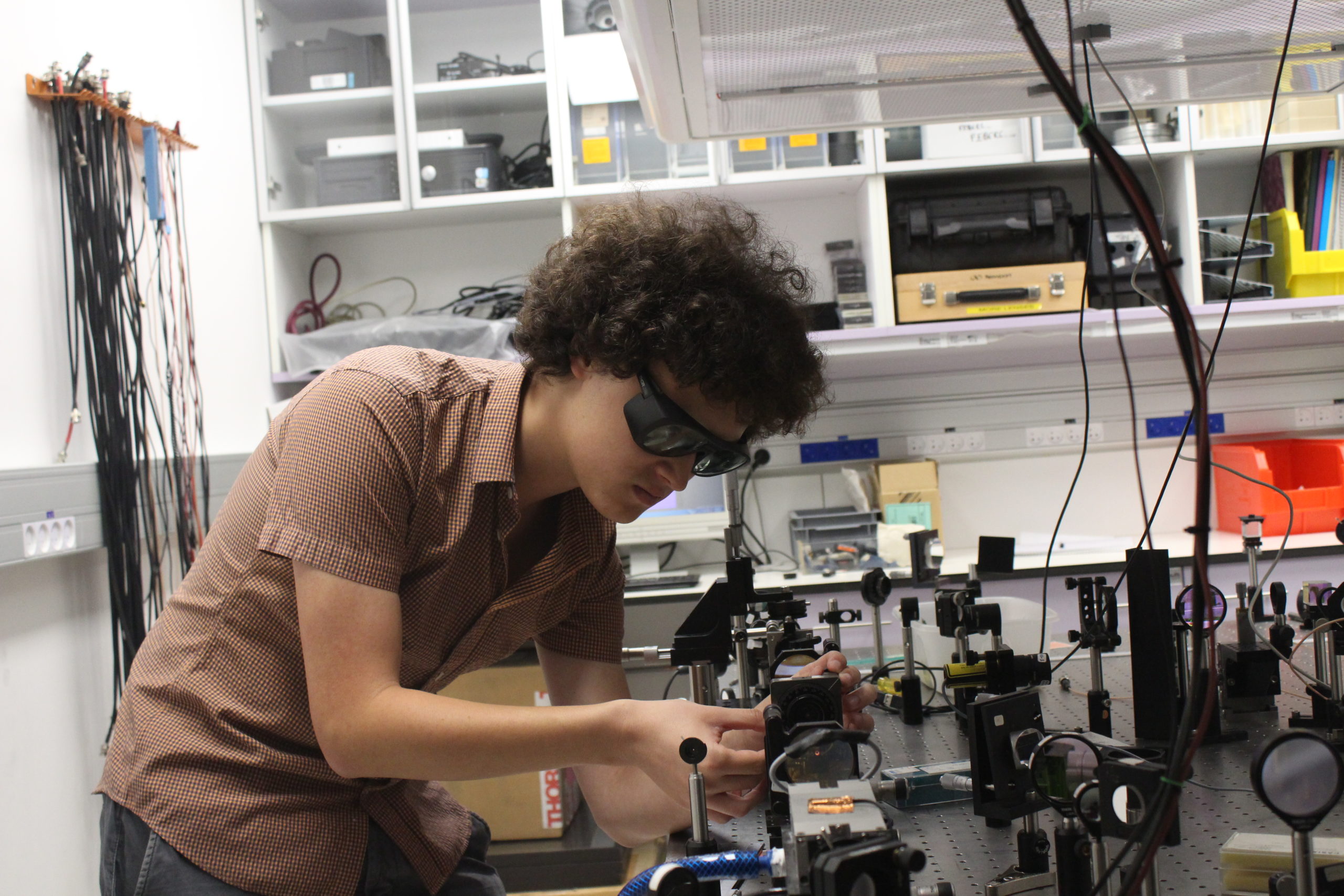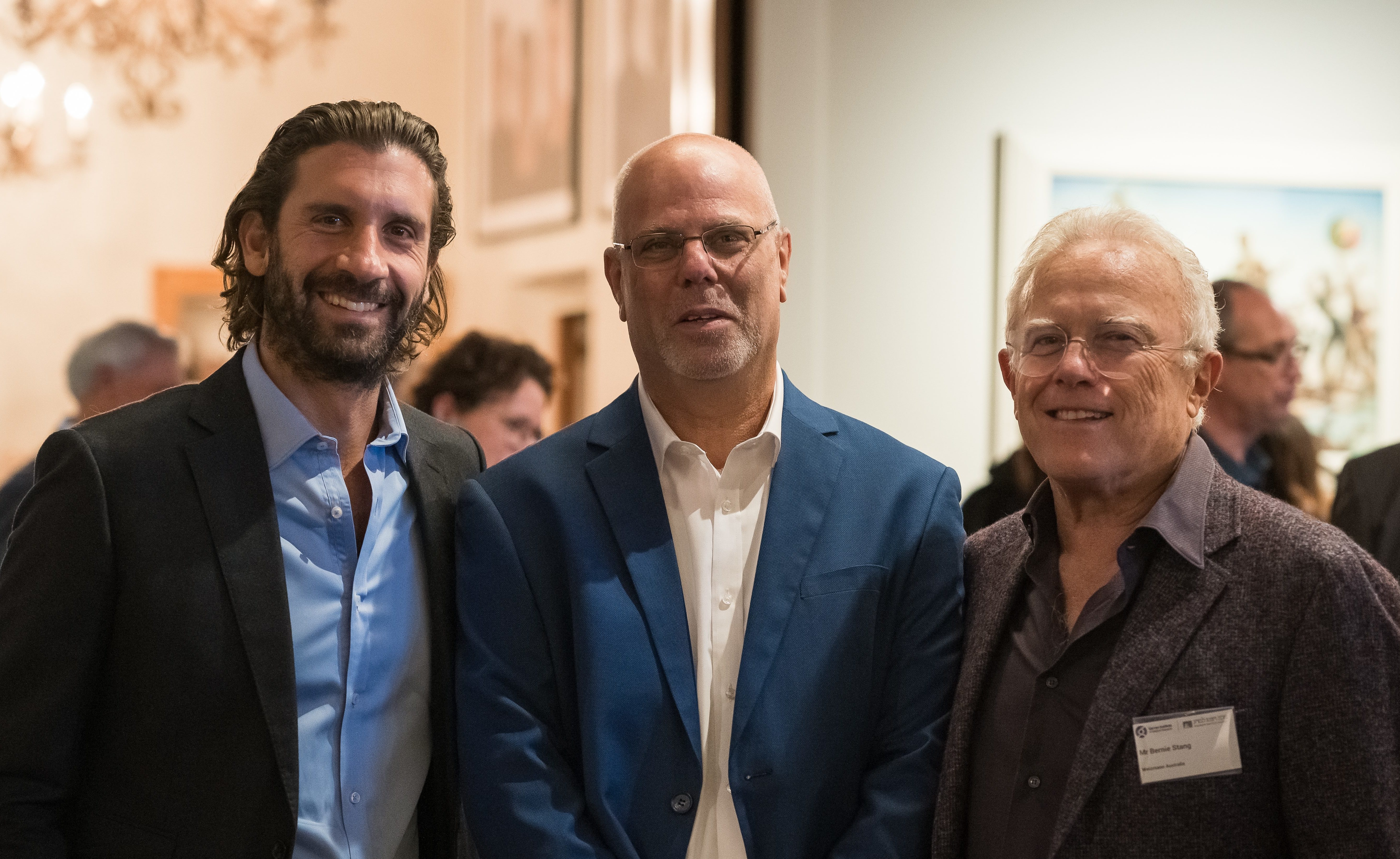
September 17, 2019
To celebrate the second anniversary of the Garvan-Weizmann Partnership, the Weizmann Institute of Science’s Vice President Elect, Professor Reich Ziv, and Head of Weizmann’s Crown Institute for Genomics, Dr Keren-ShaulHadas, came to Australia to deliver talks and meet Australian colleagues from the Garvan Institute of Medical Research.
An exclusive celebratory event was held in late August where Garvan-Weizmann researchers, executive and supporters gathered to hear Professor Reich deliver his maiden speech as Vice President Elect.
Professor Reich, who will take up his role in December, commenced by providing background on Weizmann, outlining the relationship with the Garvan through the Garvan-Weizmann Centre for Cellular Genomics, and underlining the important fact that many Weizmann scientists study ‘failures’ in nature to find out why processes suddenly go awry.
“The purpose of the Garvan-Weizmann Partnership is to use our joint scientific knowledge along with cutting-edge methodologies and technologies at the Garvan and Weizmann Institutes to understand some of the most devastating failures we know and care about – in particular, those that lead to cancer and autoimmune diseases, such that we can fix them or at least keep them at bay,” he said.
He emphasised the importance of studying cellular genomics, which is the genomics of individual cells as opposed to traditional genomic studies which look at the genomics of groups of cells or tissues all mixed together.
“Even if we look at two perfectly normal cells from the same clone, or at two cancerous cells, again, from the same clone, there are going to be differences between them. And these differences can be clinically important,” said Professor Reich.
“It turns out, that cells, just like us, are unique and therefore looking at averages rather than at the full spectrum of individual behaviours leaves a great deal of important information out.
The studies carried out within the Garvan-Weizmann partnership can lead towards finding answers to questions previously unanswerable, leading to potential cures for previously incurable diseases. “It’s really hard to think of a worthier cause than that,” he said.
Two days prior to the official celebrations at the Garvan Institute, Dr Keren-Shaul, who was drawn to science from a young age, presented her work in Weizmann’s Genomics Unit and her Alzheimer’s Disease research – entitled: “Disease Associated Microglia: A Universal Immune Sensor of Neurodegeneration”.
Dr Keren-Shaul’s unit provides genomics and single cell genomic technologies and workshops for research scientists at the Weizmann Institute and beyond and can be seen as a sister unit to the Garvan-Weizmann Centre for Cellular Genomics.
At Weizmann she developed a protocol called the MARS-Seq which supports the preparation of libraries for RNA sequencing at high efficiency, high throughput and low cost and can be used with very small amounts of genetic material. This protocol was critical to the discovery by Weizmann Professors Michal Schwartz and Ido Amit of a subpopulation of immune cells in the brain that could potentially serve as targets for future Alzheimer’s therapies.
Working with an Alzheimer’s Disease mouse model and single cell genomic technologies, Dr Keren-Shaul’s group have also been able to show that microglia, which are the brain’s resident immune cells, play a key role in neurodegenerative diseases.
“In my research, I am using single cell technologies to uncover the role of the immune cells in neurodegenerative diseases. The more we learn on this system, the closer we are getting to understand the mechanisms of the diseases, which brings us closer to finding a cure,” said Dr Keren-Shaul.
“My ultimate goal is to make genomics and state of the art genomic technologies, such as single cell genomics, accessible to all researchers in Weizmann as well as for all other researchers,” she explained.
“The technology is available and the scientific community should find the best ways to use it so we can all contribute to make a great impact on human health and disease treatment.
When it comes to Australia and her experience here, she could see many similarities between Australia and Israel.
“Like Israel, people here have been very open and welcoming. It was great visiting the Garvan-Weizmann Centre as I met a lot of interesting people and had some really fruitful discussions,” she said.
“We have a lot of similarities in our work, especially in relation to the use of the genomic technologies and sharing our experiences with each other can be highly beneficial,” she concluded.
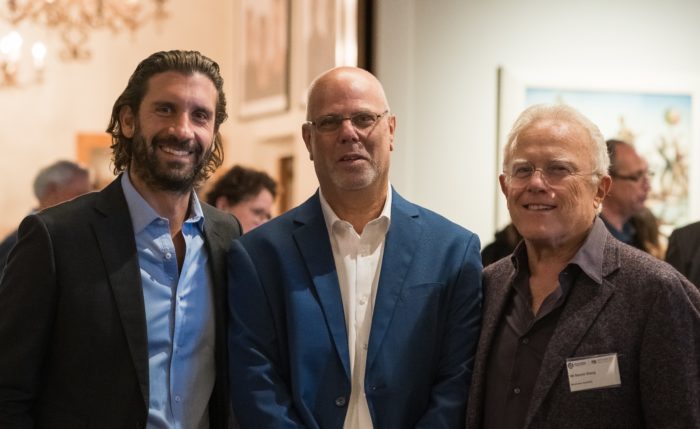
Weizmann Australia board members, Dan Bennett (L) and Bernie Stang (R) with Professor Ziv Reich (middle) at the official anniversary celebration
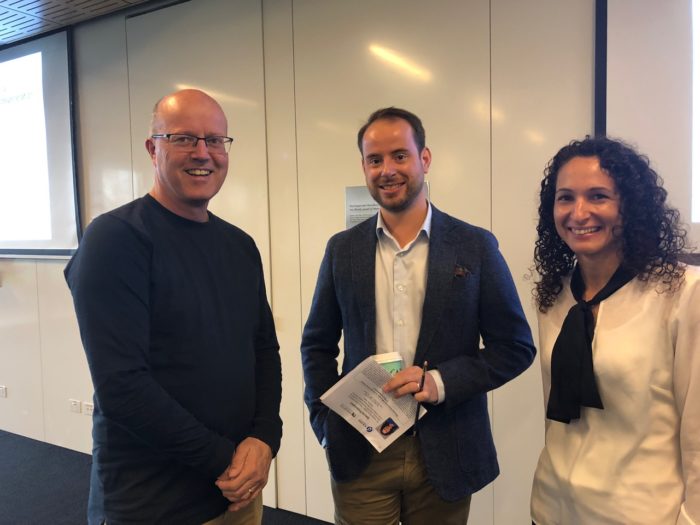
Associate Professor Antony Cooper (Head of Neuroscience, Garvan Institute of Medical Research), Professor Joseph Powell, Head of Garvan-Weizmann Centre for Cellular Genomics and Dr Hadas Keren-Shaul, Head of Weizmann’s Crown Institute for Genomics during her talk at the Garvan Institute of Medical Research

